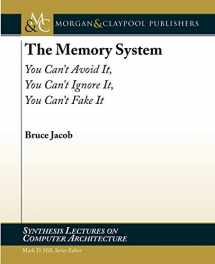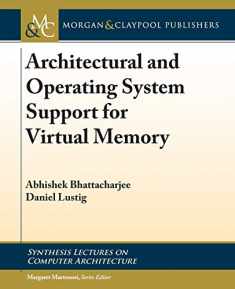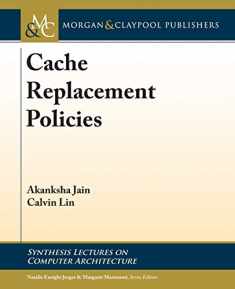
The Memory System: You Can't Avoid It, You Can't Ignore It, You Can't Fake It (Synthesis Lecutres on Computer Architecture)
Book details
Summary
Description
Today, computer-system optimization, at both the hardware and software levels, must consider the details of the memory system in its analysis; failing to do so yields systems that are increasingly inefficient as those systems become more complex. This lecture seeks to introduce the reader to the most important details of the memory system; it targets both computer scientists and computer engineers in industry and in academia. Roughly speaking, computer scientists are the users of the memory system, and computer engineers are the designers of the memory system. Both can benefit tremendously from a basic understanding of how the memory system really works: the computer scientist will be better equipped to create algorithms that perform well, and the computer engineer will be better equipped to design systems that approach the optimal, given the resource limitations. Currently, there is consensus among architecture researchers that the memory system is "the bottleneck," and this consensus has held for over a decade. Somewhat inexplicably, most of the research in the field is still directed toward improving the CPU to better tolerate a slow memory system, as opposed to addressing the weaknesses of the memory system directly. This lecture should get the bulk of the computer science and computer engineering population up the steep part of the learning curve. Not every CS/CE researcher/developer needs to do work in the memory system, but, just as a carpenter can do his job more efficiently if he knows a little of architecture, and an architect can do his job more efficiently if he knows a little of carpentry, giving the CS/CE worlds better intuition about the memory system should help them build better systems, both software and hardware.


We would LOVE it if you could help us and other readers by reviewing the book
Book review





